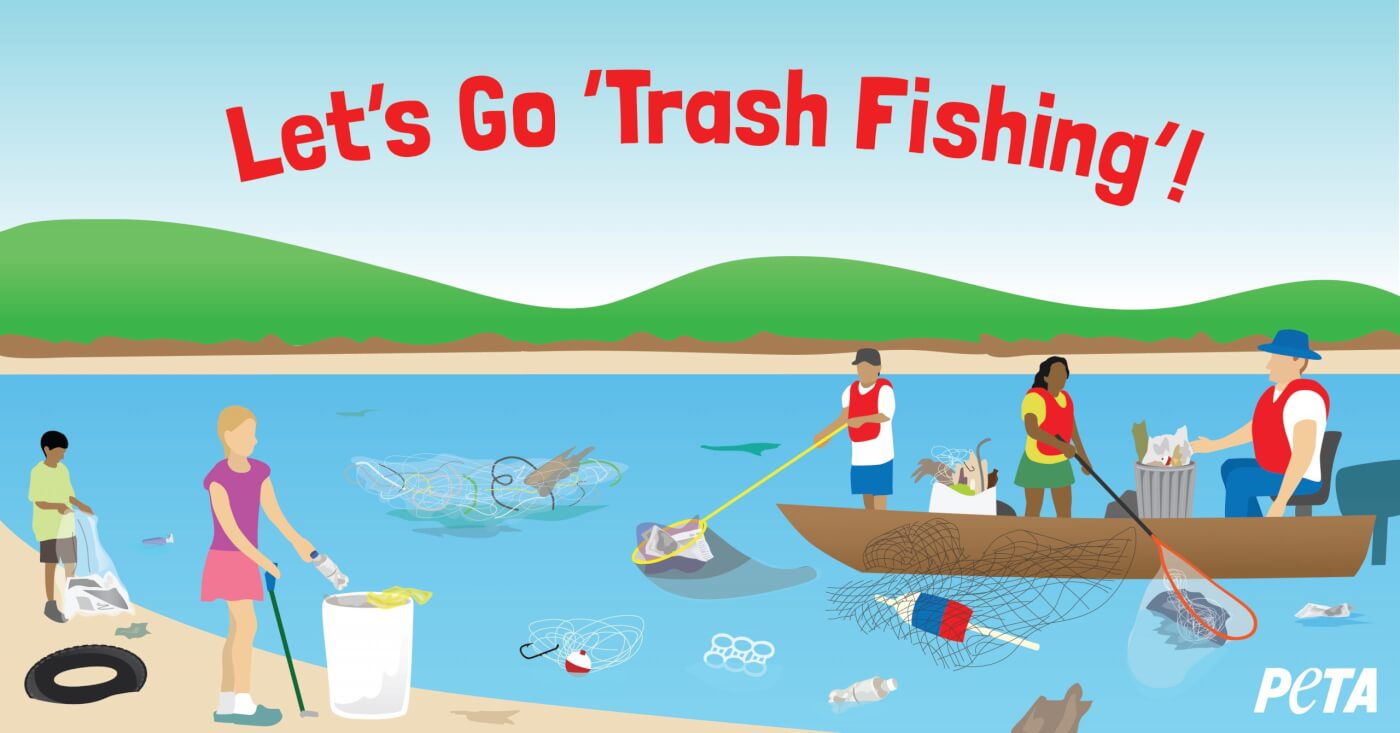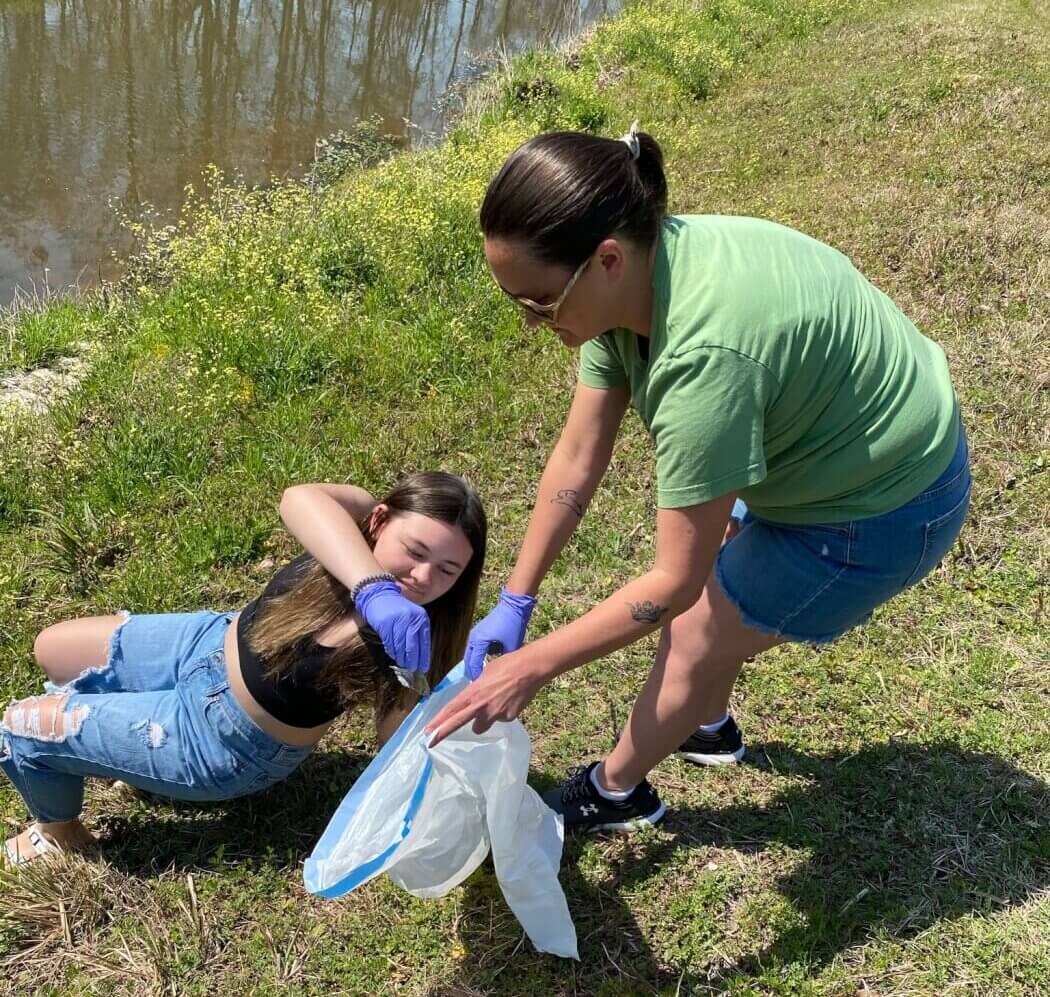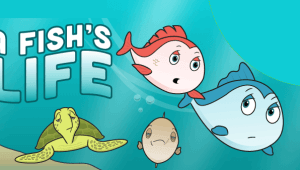Get Inspired to Save Animals With this Fun Outdoor Activity!
Here’s a quick pop quiz for students: Do fish feel pain?
The answer is yes, of course! And just like us, fish want to be free and live in their natural homes with their friends and families. Unfortunately, because of littering and fishing, there’s a lot of trash in the ocean, lakes, ponds, and other marine habitats. The fish, turtles, frogs, birds, and other animals who live there can get entangled in it or accidentally eat it, which can harm or even kill them. That’s why “trash fishing”—a fun, easy, animal-friendly activity thought up by father-and-son team Tom and Mark—is the perfect way to teach your students about the importance of “catching” trash instead of fish in order to help keep the great outdoors clean and safe for everyone.
What Is Trash Fishing?
It’s fishing for trash instead of animals! So instead of tormenting fish by yanking them out of the water, your students can help clean up their homes in nature.

Trash fishing can be a great socially distant activity to participate in on a field trip to a local waterway, or students can do it on their own time for extra credit. Everyone benefits—animals get a cleaner home, the students get exercise and fresh air, the environment becomes healthier, and the whole community enjoys the beautified natural area.

Interview With Tom and Mark
Read PETA Kids’ interview with Tom and Mark to learn more about trash fishing and their inspiration for creating this activity.
What Materials Do Students Need for Trash Fishing?
Students just need gloves, something to collect garbage in (plastic 55-gallon drums or biodegradable extra-large trash bags are good options), and a can-do attitude. They can also use nets, trash grabbers, or whatever other tools they may find helpful. And boats are optional! Students can walk along the shoreline of any body of water and pick up trash—it’s super-easy to do. Remind them to dispose of the garbage that they collect in a recycle bin or trash can.
What If My Students Don’t Live Near a Body of Water?
That’s no problem. They can still clean up litter in any outdoor area—it all helps animals and the environment.
Why Is Trash Fishing Better Than Fishing?
Fishing hurts fish as well as other aquatic animals and birds who get caught in or eat the discarded fishing line, nets, and other gear. And other trash pollutes waterways, hurts land animals, and is unsightly, too.
*****
We ♥ trash fishing! Tom and Mark continue to help animals and encourage others to do so as well with their trash-fishing events, in which residents of their community join them on the water and see who “catches” the most trash! Check out their events here, and challenge your students to start their own trash-fishing groups.






